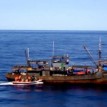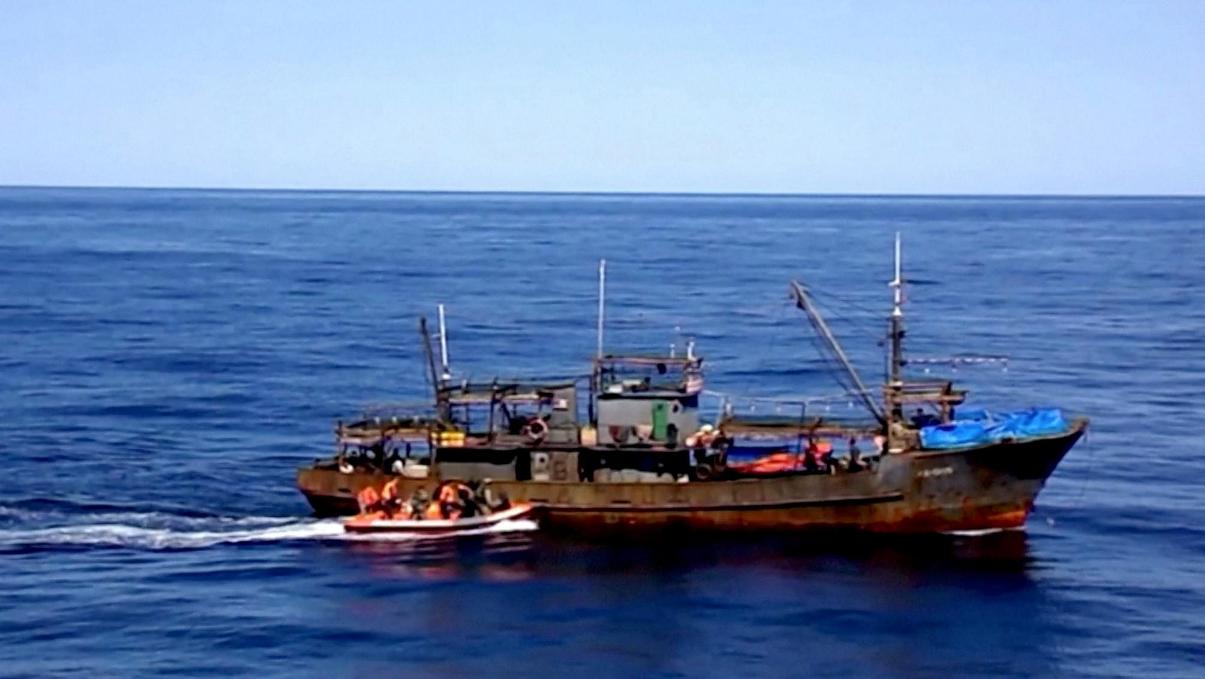Rejection of Nigerian Class Vessels: Experts sing discordant tunes, accuse FG of neglect

Expect new NIMASA leadership to change situation
By Eguono Odjegba
MARITIME and ports experts have blamed the Federal Government for lack of capacity and growth in indigenous shipping industry leading to the domination of the sector by foreigners, whose vessels are adjudged compliant with international standard and vetting class.
However, they differ significantly in their views on whether or not Nigerian Class Vessels should be allowed to participate in oil and gas transportation by the international oil companies, IOCs, believed to be patronising only Foreign Class Vessels, vetted by International Association of Classification Societies, IACS.
President, Nigerian Institute of Shipping, Capt. Anthony Onoharigho, had raised the alarm about increasing numbers of local vessels abandoned at various jetties, purportedly on the ground that these vessels were rejected and denied opportunity to engage in the crude logistics chain.
READ ALSO:IBM appoints Angela Kyerematen-Jimoh as First African Regional Head
Whereas IACS represents non-governmental organizations established to maintain technical standards and carry out regular surveys in service to ensure continuing compliance with standards, Onoharigho explains that following the huge cost in accessing IACS vetting, certain individual maritime, oil and gas nations like Nigeria came up with local alternative issuing Nigerian Class Vessels certification.
He, however, added that after some years and owing to lobby by foreign interests, the IOCs began to reject Nigerian Class Vessels certifications which he said, is not technically inferior to Foreign Class Vessels.
He argues that for Cabotage Trade to thrive, vessel certified by Phoenix, INSB, IRS, Conarina, among others that are recognized by the Nigerian Maritime Administration and Safety Agency, NIMASA, should be given equal attention like those certified by Llyods Register, American Bureau of Shipping, ABS, Bureau Veritas, BV, China Classification Society, CCS, Korea Register of Shipping, KRS, etc under the auspices of Foreign Class Vessels.
IACS is represented by 12 member societies headquartered in London, and is believed to have assumed the global right to issue merchant shipping marine classification. Onoharigho tasked NIMASA to take action to correct the imbalance while pointing at Chevron and Mobil as the leading IOCs opposed to the use of Nigerian Class Vessels.
He stated: “NIMASA should compel the oil companies to accept vessels certified by non IACS classification which are approved by the government. Within the oil sector where we have the supply boat of 120 tonnes or 300 tonnes, how do you expect them to take IACS certification when they have paid about $35,000 for the vessel, and they are not even sure of getting jobs when they finish?
“It is making life difficult for the ship owners because most of them want to classify their vessels but cannot pay the funds, and the stringent measures put in place by IACS right now are to monopolize the industry. They have no right to deprive any vessel from working in Nigeria because it is a national approval. Chevron, Mobil for example doesn’t touch any vessel that is non IACS and this is not good.”
But commenting on the situation, President of the Allumni of Maritime Academy of Nigeria, Oron, AMANO, Engr. Austin Zurike, said oil and gas trade is guided strictly by international standadards, and suggested that rather than lament and seek alternative vessel classification, Nigerian ship owners should seek relevance through utilisation of the Cabotage Vessel Financing Fund, CVFF.
He stated: “Oil and gas business is international, marine is international, and international businesses have standards and these standards are entrusted upon IACS to monitor and enforce. If local vessel owners are unable to meet these standards compared to their foreign counterparts, rather than cry, we should aspire to meet the requirement. Nigerian ship owners should seek for ways to get the federal government to act on the Cabotage Law by implementing the Cabotage Vessel Financing Fund, CVFF.
“I think that is the smartest approach to getting involved in oil and gas transportation. Just few days ago, in a local vessel accident that occurred, a crew member lost his life while one was critically injured; this is the sort of thing that happens when standards are not met.”
Also commenting, maritime resource person, Charles Okorefe, blamed the inability of local shipping players to get their due recognition on lack of focus by the Nigerian government, and corruption by political office holders who have embezzled funds designed to develop and upgrade local shipping and make them competitive.
He said, “To the best of my knowledge, Nigerian operators own only a handful of seaworthy vessels, and the IOCs are known for their proclivity to standards. Yes, they may be cornering the most lucrative jobs and contracts but I think we should focus our attention on how NIMASA can begin to empower indigenous ship owners, starting with the efficient and transparent disbursement of the CVFF.
“I am sure Bashir Jamoh, Director General of NIMASA, will make a difference in this regards because I know it is one subject dear to his heart. It is only when indigenous players have been empowered with vessels of acceptable standards that we can adequately gauge whether they are still being shortchanged in favour of the foreign players.”
The post Rejection of Nigerian Class Vessels: Experts sing discordant tunes, accuse FG of neglect appeared first on Vanguard News.

No comments: